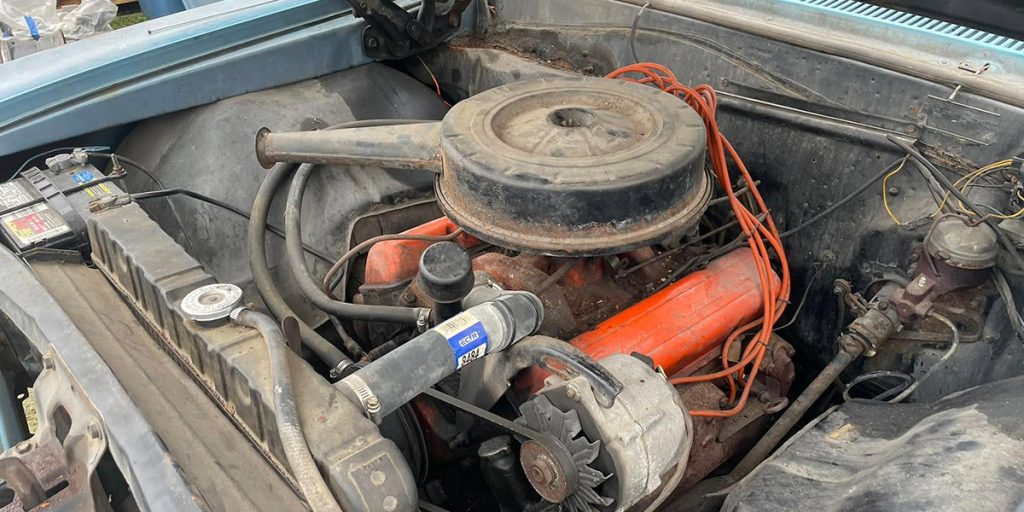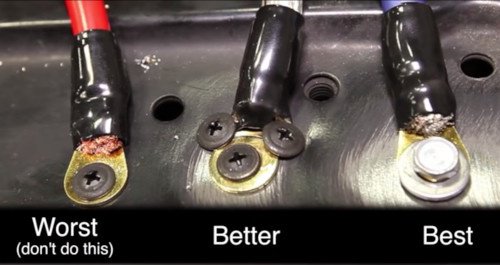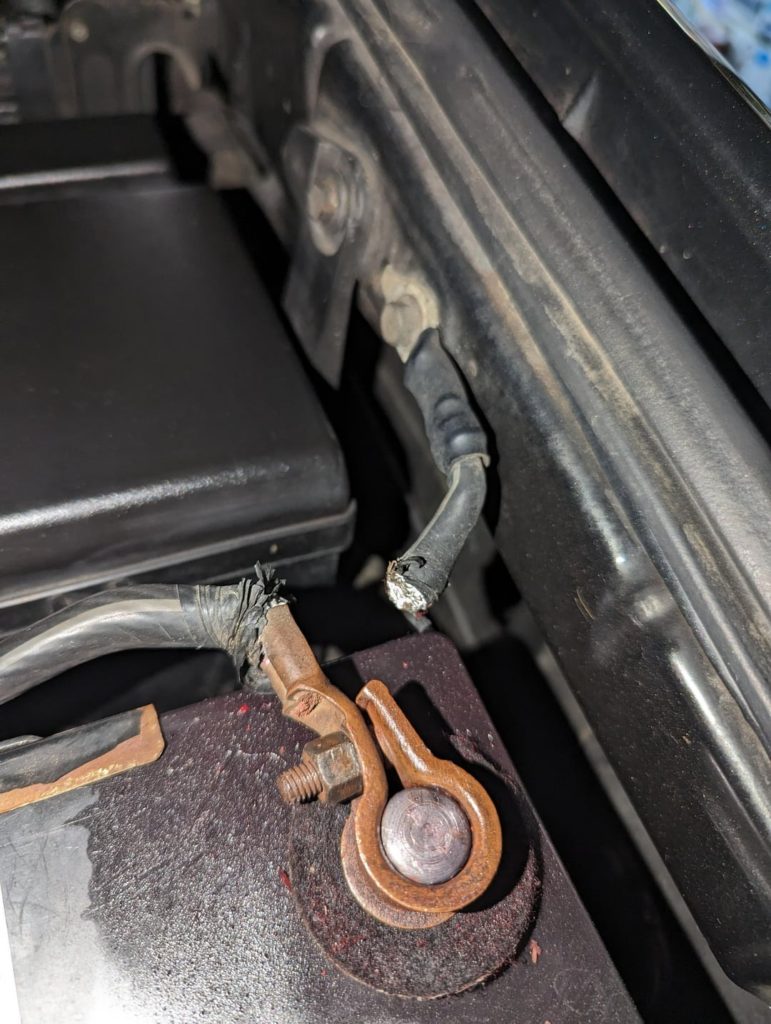
1964–1972 Chevelle Small Block Identification Guide
When it comes to restoring or verifying the originality of your Chevelle, correctly identifying the small block under the hood an important step. After all,
In the realm of automotive electrical systems, grounds play an important role in a working electrical system. Often overlooked, a solid ground connection is essential for proper electrical function, vehicle safety, and overall performance.
In an automotive electrical system, the ground serves as the return path for electrical current flowing from the component back to the battery or power source. Without a proper ground connection, electrical circuits cannot be completed, leading to malfunctioning components, erratic behavior, and potential safety hazards. Grounds are essential for powering everything from lights, sensors, and ignition systems to electronic control units (ECUs) and stereos.
In an electrical system, the ground acts as a reference point and return path for electrical current. It establishes a connection between components and the power source, typically the battery, allowing current to flow back and complete circuits. In automotive applications, the vehicle’s chassis or grounding points serve as the ground, ensuring proper circuit operation and safety. Grounds are essential for a properly working electrical system.
Direct Connection: Components should be grounded directly to the vehicle chassis or battery negative terminal whenever possible. Avoid relying on body panels, brackets, or other intermediary connections, as they can introduce resistance and compromise the ground.
Clean and Secure: Ground connections must be clean, free of corrosion, and securely fastened. Use a wire brush or sandpaper to remove any rust or debris from the contact surfaces, and tighten connections snugly to prevent loosening over time.
Proper Gauge Wire: Use appropriately sized wire for ground connections to handle the current flow without overheating or voltage drop. Too big is better than not big enough!
Multiple Ground Points: Distribute ground connections strategically throughout the vehicle to minimize voltage drop and ensure adequate current flow. Avoid relying on a single ground point for all components, especially in larger or more complex systems.

Remember, there’s no such thing as too many grounds! You can’t have too big of a ground wire as well. In fact, grounds are often more important than the power wire. Most electrical issues are a result of poor grounds.
Dim or Flickering Lights: Poor ground connections can cause lights to appear dim, flicker, or fail altogether. This is often seen in headlights, taillights, and interior lighting systems.
Electrical Malfunctions: Erratic behavior or intermittent operation of electrical components such as power windows, door locks, and radio can indicate a grounding issue.
Electrical Noise: A buzzing or humming sound from speakers or interference on the radio may result from a poor ground connection in the audio system.
Engine Performance Issues: In vehicles with electronic fuel injection (EFI) or engine control modules (ECMs), a bad ground can lead to rough idling, stalling, or difficulty starting the engine.

When troubleshooting ground-related issues, start by visually inspecting ground connections for signs of corrosion, looseness, or damage. Use a multimeter to measure voltage drop across ground connections and verify continuity to the vehicle chassis or battery negative terminal. If necessary, clean or replace corroded terminals, tighten loose connections, and reroute ground wires to better locations.
Regular maintenance practices such as cleaning battery terminals, inspecting wiring harnesses, and checking ground connections during routine service intervals can help prevent ground-related problems and ensure the reliability of the vehicle’s electrical system.
Grounds are the unsung heroes of automotive electrical systems, providing a critical path for current flow and ensuring the proper operation of various components. By understanding the importance of grounds, establishing good ground connections, recognizing signs of a bad ground, and implementing effective troubleshooting and maintenance practices, vehicle owners can maintain reliable electrical performance and enjoy a safer driving experience.
If you have any electrical issues you’re fighting or needs the right parts to fix your electrical issue, hop on SS396.com or call our friendly techs a call at (203) 235-1200!

When it comes to restoring or verifying the originality of your Chevelle, correctly identifying the small block under the hood an important step. After all,

Is your ’67 Chevelle SS The Real Deal? Enthusiasts love classic cars for all sorts of reasons such as the looks, performance, history, and nostalgia.

Get $25 Off* when you apply the Code: SS299 during checkout on orders over $299. Max Discount $25. Valid until 06/21/25 (9pm ET). Don’t miss out on this opportunity to save on the essential parts that keep your restoration moving forward.
